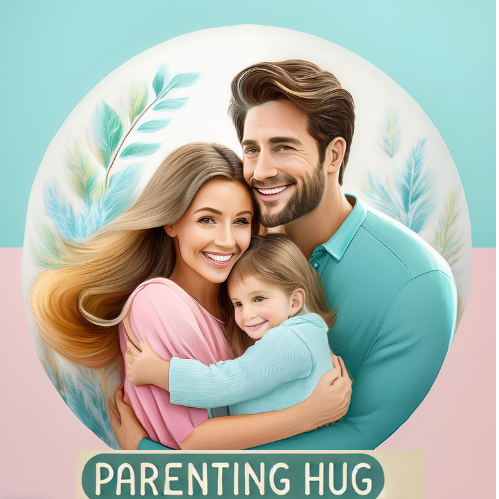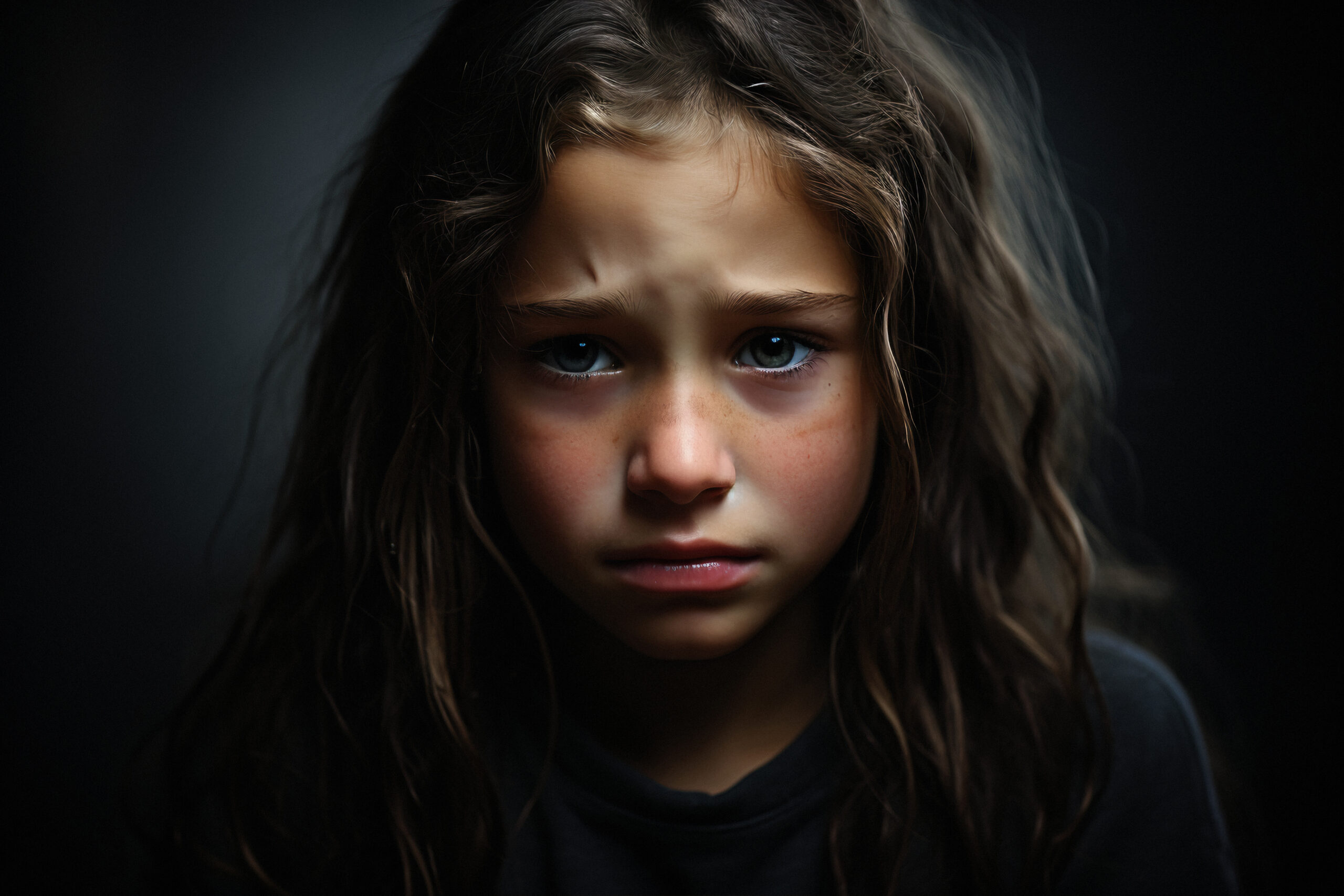The Silent Pain: A Child’s Cry for Love: In the corner of a brightly lit living room, ten-year-old Emily sat quietly, her knees tucked under her chin, staring at the door. Her parents were arguing again—voices raised, hands gesturing angrily, as if the louder they became, the more they would be heard. But Emily had grown used to it. It was normal now, the background noise to her life. What wasn’t normal was the gnawing emptiness in her chest, the constant ache for attention, for someone to notice she was even there.
Emily wasn’t asking for much—just for her parents to care. Not about what she ate or what clothes she wore, but about her. She wanted them to ask how her day was, what she was feeling, why she was so quiet. But they never did. They were too caught up in their own lives—jobs, bills, stress, and the never-ending cycle of blame between them.
At school, Emily wasn’t any different. Her teacher had noticed the withdrawn child in the back row, always staring at her desk, but when asked if everything was okay, Emily simply nodded, offering a small smile that didn’t reach her eyes. Children like Emily don’t have the words to explain the void inside them. They don’t know how to say, “I need love. I need someone to care about my heart.”
That evening, as Emily sat alone, her mother, Kate, stormed past her, barely sparing her a glance. Emily didn’t flinch. It had become normal to be invisible. She watched as her mother grabbed her keys and slammed the door behind her. Silence filled the house.
Emily slowly
rose and wandered into the kitchen, looking for some warmth, something that might fill the empty space inside her. She opened the refrigerator, but nothing looked appetizing. She wasn’t hungry. She was just… tired. Tired of being unseen, unheard, and uncared for.
Her father, Jason, sat in his home office, glued to his computer screen, as if the world outside didn’t exist. Emily stood in the doorway, watching him for a moment. She wanted to go to him, to ask for a hug, to sit on his lap like she used to when she was younger. But something stopped her—fear. Not of punishment or anger, but of rejection. The feeling of being dismissed was more painful than any scolding.
She turned and went back to her room, closing the door behind her. It was here, in this small space, that Emily felt safest. She had her books, her stuffed animals, and her own thoughts. But even here, the silence was deafening. She wished someone would knock on her door and ask, “How are you feeling today, Emily?” But no one ever did.
A Crushed Heart
Months passed, and the emptiness inside Emily only grew. Her parents’ arguments became more frequent, and their presence in her life felt more like shadows than real people. They provided for her physical needs—she had clothes, food, and a roof over her head—but they failed to see the fragile heart within their daughter, slowly breaking under the weight of neglect.
One afternoon, Emily came home from school with a drawing she had made during art class. It was of a happy family—parents holding hands with their child, smiling, playing in a park. She had drawn it because that’s what she wished her family was like. She carefully folded the drawing and placed it on the kitchen counter, hoping her mom would see it when she got home from work.
Hours passed, and when her mother finally came home, exhausted from the long day, she barely glanced at the paper. Emily watched as her mom tossed it aside with the rest of the mail, completely unaware of the significance of the drawing. That night, as Emily lay in bed, she felt the heavy sting of being forgotten once again.
The next day, Emily didn’t bother drawing anything. What was the point? Her parents didn’t care. They never had. She began to wonder if something was wrong with her—why didn’t they love her the way other parents loved their children?
The Breaking Point
As time went on, Emily’s heart became more and more closed off. She stopped trying to connect with her parents, stopped asking for their attention. She learned to build walls around her emotions, pretending she didn’t need their love. But deep down, the pain festered.
It wasn’t until her twelfth birthday that things reached a breaking point. She didn’t expect a big celebration—her birthdays had always been simple, marked by a cake and a few presents. But this year was different. Her mother was too busy with work, and her father forgot altogether. There was no cake, no presents, no acknowledgment that the day was special.
Emily sat alone in her room, staring at the floor, tears rolling down her cheeks. This was it. This was the final confirmation that she didn’t matter. If her parents couldn’t even remember her birthday, what was the point of trying to make them see her?
She felt a tightness in her chest as the sobs began to overwhelm her. The pain was too much to bear, and for the first time, Emily wished she could disappear. She wondered if anyone would even notice if she was gone.
A Parent’s Realization
The next morning, Kate noticed something was wrong. Emily wasn’t up for school, and when she opened her daughter’s door, she found her curled up in bed, tears still fresh on her face. A pang of guilt hit her hard. She sat down beside her daughter, tentatively placing a hand on her shoulder.
“Emily,” she whispered, her voice shaky, “what’s wrong?”
For the first time in months, Emily spoke the words she had kept hidden deep inside her. “You don’t care about me,” she said softly, her voice breaking. “You never ask how I feel. You don’t care about my heart.”
Kate’s heart shattered. She had been so caught up in her own world, so overwhelmed by life, that she hadn’t seen the damage she was doing to her own child. Jason, overhearing the conversation, stepped into the room. He, too, felt the weight of his neglect.
In that moment, they realized how much they had failed their daughter. Emily didn’t need things. She didn’t need gifts or grand gestures. She needed them—her parents—to show her that they cared about her, not just as a child to provide for but as a person with emotions, thoughts, and needs.
A New Beginning
It took time, but things began to change. Kate and Jason made a conscious effort to be there for Emily—not just physically, but emotionally. They asked her about her day, listened to her feelings, and, most importantly, they showed her love. Not through words alone, but through actions—hugs, time spent together, and moments of genuine care.
Emily’s walls slowly began to come down. She started to smile again, not the forced smiles of before, but real, heartfelt ones. She felt seen, heard, and loved. And in that love, she began to heal.
Conclusion
Neglecting a child’s emotional needs can have lasting, devastating effects. Children need more than just food and shelter—they need to know they are loved, cared for, and important. Don’t let the busyness of life blind you to the needs of your child’s heart. Take the time to ask, to listen, and to love, because in the end, that’s what matters most.
The Silent Pain: A Child’s Cry for Love


1 thought on “The Silent Pain: A Child’s Cry for Love”